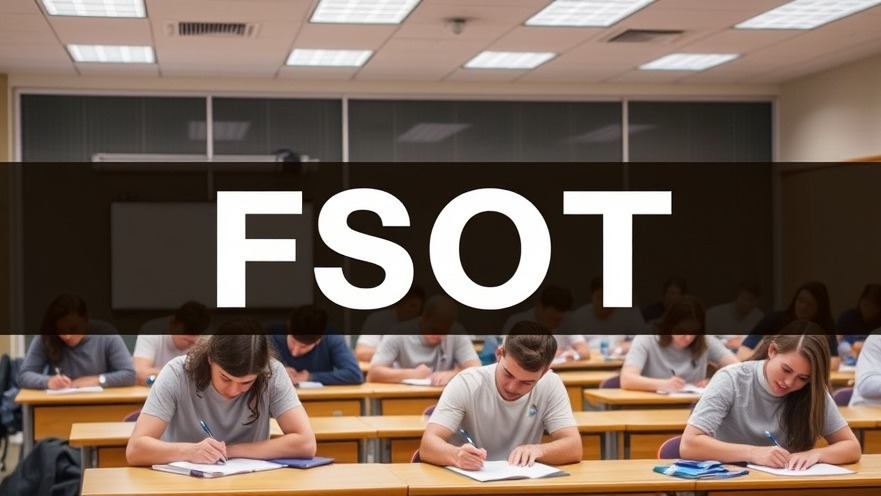
Understanding the Importance of the Foreign Service Officer Test (FSOT)
The Foreign Service Officer Test (FSOT) is a critical gateway for individuals aspiring to serve as Foreign Service Officers (FSOs) in the U.S. government. Designed to assess a candidate's capabilities, this rigorous test ensures that only the most qualified individuals are selected to represent the United States internationally. With updates to the FSOT structure, it’s important for potential candidates to understand what these changes entail and how they can prepare.
What’s New in the FSOT?
The recent updates to the FSOT include changes to the test content and administration process aimed at improving accessibility and emphasizing relevant skills needed in diplomatic contexts. These modifications come in response to both evolving global dynamics and the necessity for a diverse group of qualified candidates to address contemporary challenges in foreign affairs. Candidates will find that the updated format may affect their study approach, making it essential to review the official guidelines provided by the U.S. State Department.
Why Passing the FSOT Matters?
Passing the FSOT is more than just an academic achievement; it is a stepping stone towards a career that impacts U.S. foreign policy, national security, and international relations. Graduates from the FSOT are instrumental in dealing with substantial global issues such as trade negotiations, humanitarian efforts, and the promotion of democracy abroad. Aspiring FSOs should consider not only the prestige that comes with the position but also the moral and ethical responsibilities they will carry.
Preparation Tips for Aspiring FSOs
Preparing for the FSOT involves far more than studying textbooks. It is vital to stay updated on current events in America and around the world, including political changes, economic trends, and social issues that could impact U.S. interests. Here are some tips to help you prepare:
Review Current Events: Stay informed about national news headlines, including updates from Congress, Supreme Court decisions, and other significant political news that can shape foreign policy.
Diversify Your Understanding: Engage with materials that cover international relations, economic policies, and human rights issues. This will provide a broad understanding of the factors influencing U.S. diplomacy.
Practice Test Questions: Utilize available FSOT practice materials to familiarize yourself with the test format and question types. Developing test-taking strategies can also enhance your performance.
Future Opportunities Beyond the Test
Passing the FSOT opens the door to a wide array of career opportunities within the U.S. government, including roles that focus on humanitarian aid, public diplomacy, and international development. The skills acquired through the preparation of the FSOT, such as critical thinking, cultural sensitivity, and communication, serve candidates well in various career paths. As global issues evolve, the demand for skilled diplomats who can navigate complex problems ensures a bustling future for new FSOs.
A Reflection on the Role of FSOs in Global Affairs
The impact of Foreign Service Officers extends beyond mere bureaucratic function. They are the faces of American diplomacy, striving to cultivate international relations and foster understanding among nations. With today's heightened emphasis on national security and global interconnectedness, the FSOT comes to represent more than just a test; it embodies a commitment to service, advocacy, and an ongoing quest for a better world.
Conclusion: The Call to Action for Future Candidates
If you aspire to influence global affairs and represent the United States on the international stage, consider pursuing the FSOT. Prepare diligently, stay informed about current events in America, and embrace the challenges that this path presents. Your journey as a Foreign Service Officer isn't just about passing a test; it’s about being part of something larger that can bring about meaningful change.
 Add Element
Add Element  Add Row
Add Row 



Write A Comment